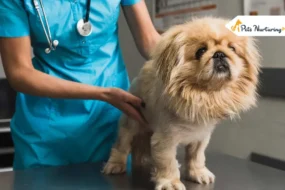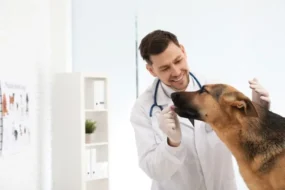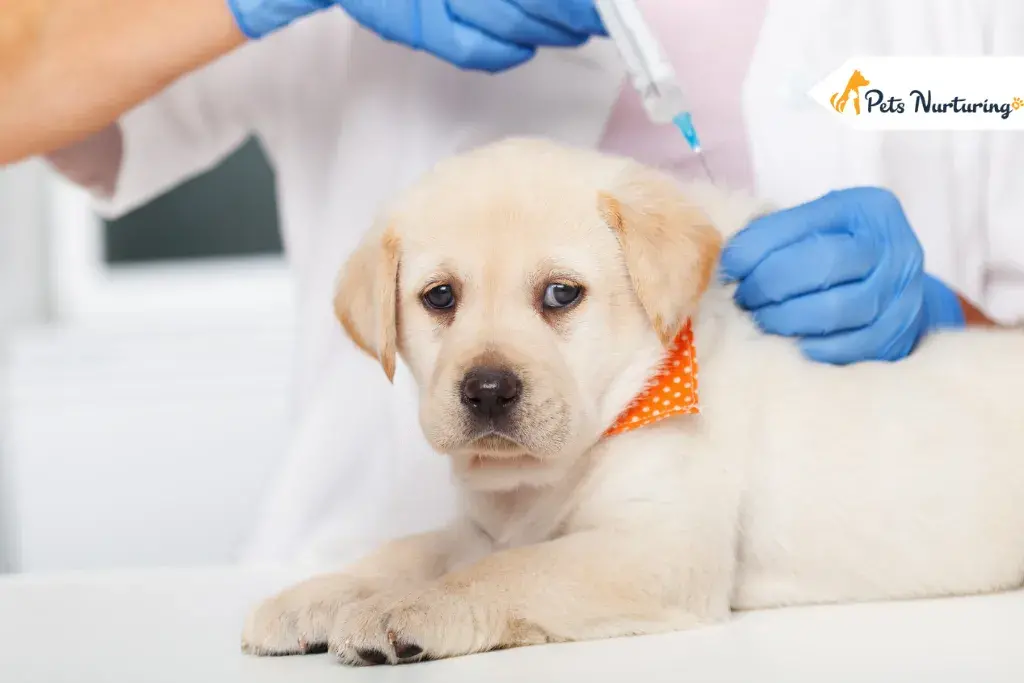
Preventing dangerous infections like rabies and Lyme disease in your cat or dog is easy with the proper vaccinations. Dog vaccinations are necessary if you want to keep them healthy and safe. If you’ve just purchased a new pet, you’ll want to ensure it has all of the essential vaccinations.
- Vaccinations for Your Dog or Cat : What You Need to Know
- Vaccinations Are No Longer Restricted to Puppies and Kittens
- What’s the Reason Behind the Discrepancy?
- Vaccines That Are Not Part of the Core Vaccine Program
- In the Herd, Immunity
- Types of Vaccines
- Vaccine Schedule
- Risks of Vaccination
- Vaccination for Travel
- Rabies
Vaccinations for Your Dog or Cat : What You Need to Know
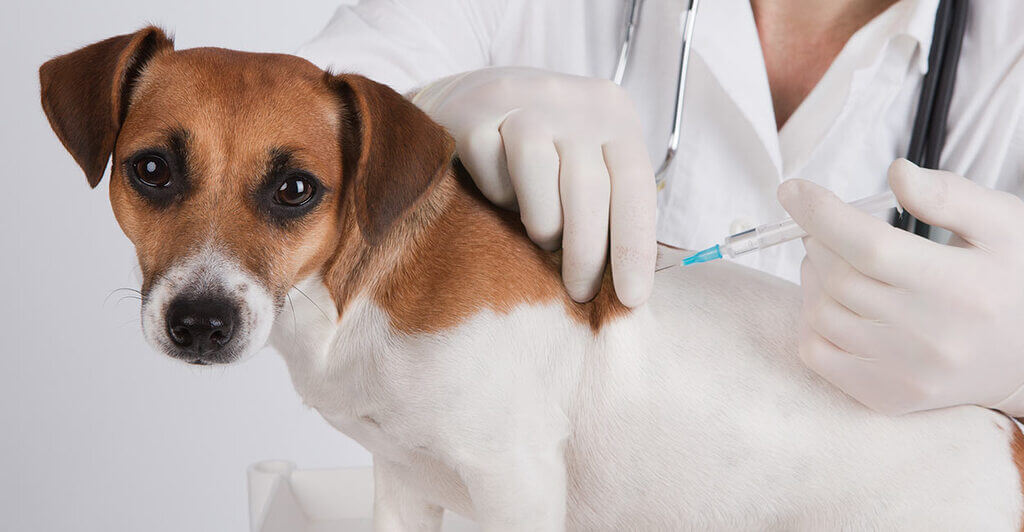
Vaccinations help puppies and kittens build a robust immune system. A lack of proper vaccinations may have a terrible effect on the health and well-being of your pets if they come into touch with a disease.
If an animal is infected with a contagious disease, it will not be able to fight it on its own. The earliest feasible health checkup and thorough vaccination program are strongly recommended for all puppies and puppies under the age of one year.
Vaccinations Are No Longer Restricted to Puppies and Kittens
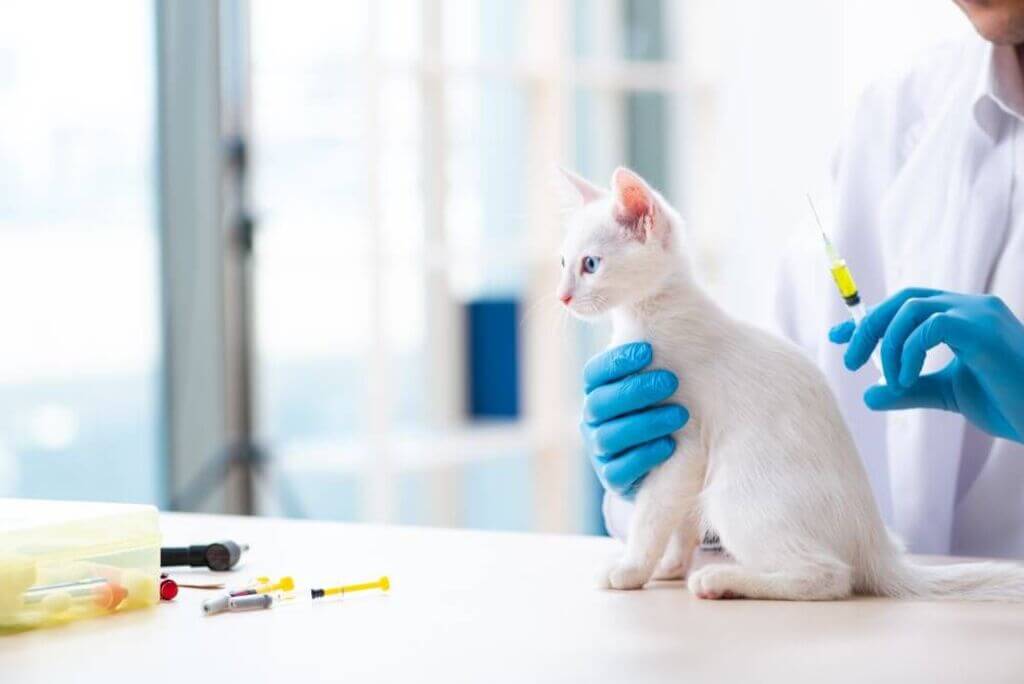
Older dogs still need to be vaccinated to ensure that the vaccine is still effective in avoiding the spread of disease. It’s a perfect time to discuss your pet’s vaccine requirements with your veterinarian during an annual visit. We’re here to help you get your pet up to date on any vaccinations they may have missed. Most pets don’t detect any adverse side effects from this risk-free method of maintaining your pet health. Choosing the mobile vaccine clinic is the best option for that.
Pets Vaccination has other benefits, including preventing the spread of disease from animals to people.
What’s the Reason Behind the Discrepancy?
Vaccination guidelines were devised in the late 1940s and early 1950s to guarantee that individuals were vaccinated against potentially dangerous infections like distemper annually.
The yearly technique was established after studies showed that one-third of pups were no longer protected after one year. Every year, veterinarians began providing vaccines to pets because it was more cost-effective than checking to see whether they were still protected from disease.
Since then, vaccinations have become more frequent, and the diseases have been brought under control. A decreased vaccination dosage provides enough protection has now been conclusively shown to be the case.
Vaccines That Are Not Part of the Core Vaccine Program
Many vaccines now available for veterinary usage are unnecessary for animals not at risk.
The Bordetella vaccination, sometimes known as the “kennel cough” vaccine for dogs, is a simple demonstration of this. Only kennel-boarded dogs are required to be vaccinated against rabies.
If your dog does become sick, however, it might be in a variety of places, such as the park, vet’s office, or even on the street. If several dogs live nearby, an event’s risk increases dramatically.
Discuss with the professionals at your local animal hospital whether or not your pet needs this kind of protection.
In the Herd, Immunity
To defend the whole population’s health, the phrase “herd immunity” refers to the level of protection that may be attained when the majority of a community is vaccinated. Humans and other creatures alike may benefit from this.
Vaccine-preventable illnesses will begin to appear in the population if a sufficient number of people do not get vaccinated, similar to what has occurred with childhood diseases as a result of parents who choose not to vaccinate their children. In recent years, we’ve seen a spike in measles, mumps, and whooping cough because so many children haven’t been immunized.
This is especially important for diseases that can be passed from animals to humans, such as rabies. So not only vaccinate them but also keep your pets healthy, it also helps protect you and your family.
Types of Vaccines

There are two types of vaccines: Killed or modified live vaccines. vets will vaccinate with killed vaccines, which have been through a process to make them unable to replicate or infect. Modified live vaccines (MLV) are created from viruses that have been weakened so they can’t cause disease but are still able to replicate. Killed vaccines are considered safer because there is no risk of the vaccine causing the disease.
However, they may not be as effective as MLV vaccines and may require booster shots more often. MLV vaccines are more likely to cause side effects like fever, lethargy, and loss of appetite, but they provide better protection against disease. Your veterinarian can help you decide which vaccines are right for your pet based on their risk factors.
Vaccine Schedule
The vaccine schedule for puppies and kittens is different from that of adult dogs and cats. Puppies and kittens should receive a series of vaccinations every 2-4 weeks until they are 16 weeks old. After that, they should receive booster shots every 1-3 years, depending on the vaccine. Adult dogs and cats should receive booster shots every 1-3 years, depending on the vaccine.
Risks of Vaccination
As with any medical procedure, there are always risks associated with vaccination. The most common side effect is soreness and redness at the injection site. Other, more rare side effects can include:• Fever• Loss of appetite• Diarrhea• Vomiting• Muscle weakness• seizures Reactions like these are usually mild and go away on their own within a few days.
Serious reactions are very rare but can include anaphylactic shock, which is a life-threatening allergic reaction. If you notice any of these side effects in your pet, please contact your veterinarian immediately.
Vaccination for Travel
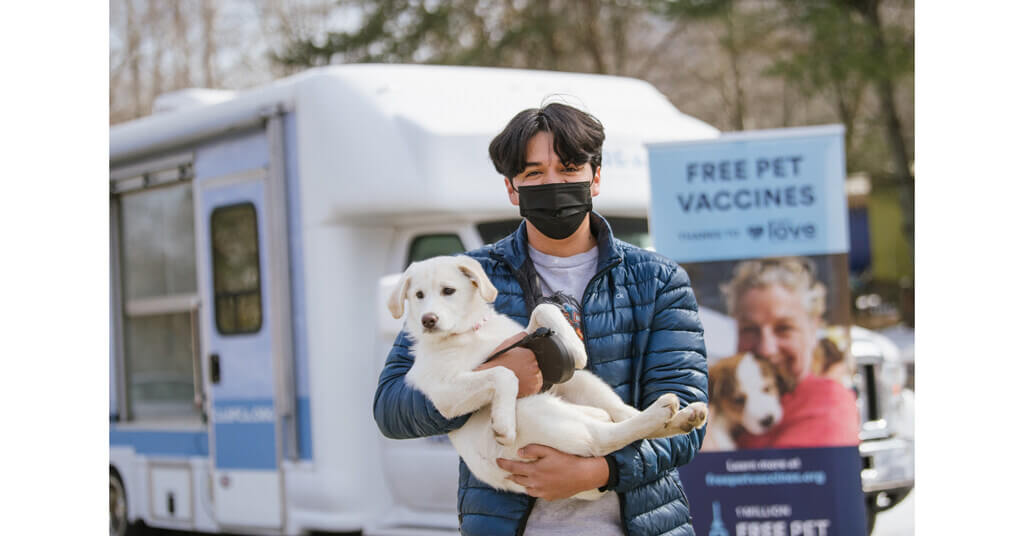
If you plan on traveling with your pet, you will need to make sure they are up-to-date on all their vaccinations. Depending on where you are going, your pet might need additional vaccines, so be sure to check with your veterinarian well in advance of your trip.
Rabies
Rabies is a fatal disease that is transmitted through a bite from an infected animal’s saliva. All dogs and cats in the United States are required by law to be vaccinated against rabies. The initial vaccine is given at 12-16 weeks of age, and then booster shots are given every 1-3 years. If your pet has been exposed to rabies, it will need to be quarantined for 6 months or euthanized. For this reason, it is very important to make sure your pet’s rabies vaccine is up-to-date.
Conclusion
Vaccinating your pet is one of the best things you can do to keep them healthy and prevent the spread of disease. vaccines are safe and effective, and they help protect not only your pet but also the people and animals around them. If you have any questions about vaccines or the vaccine schedule for your pet, please talk to your veterinarian. They will be happy to help you find what’s best for your furry friend.
Keep reading :








